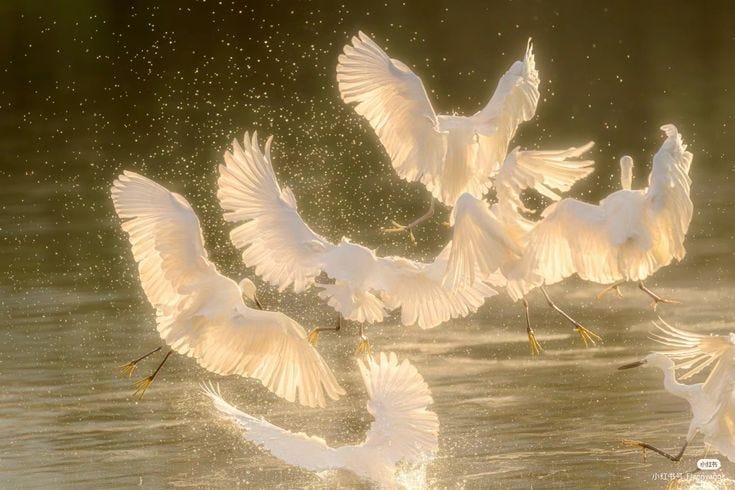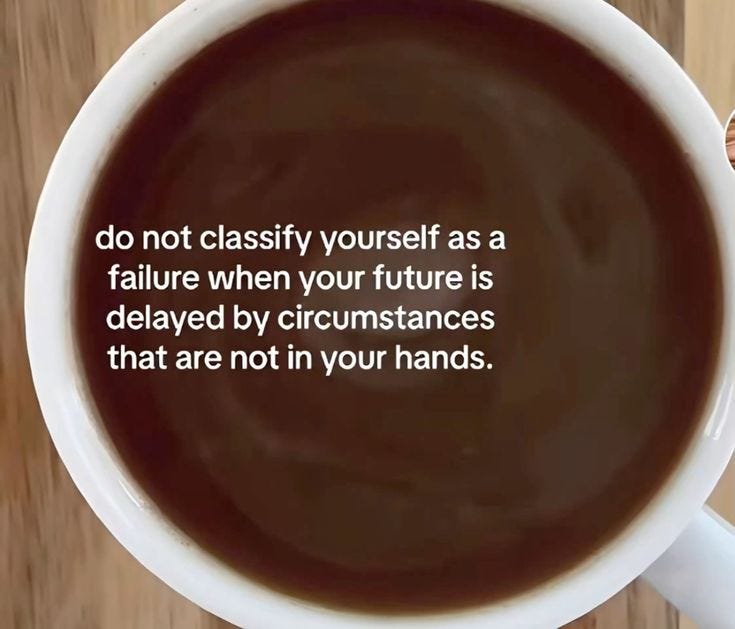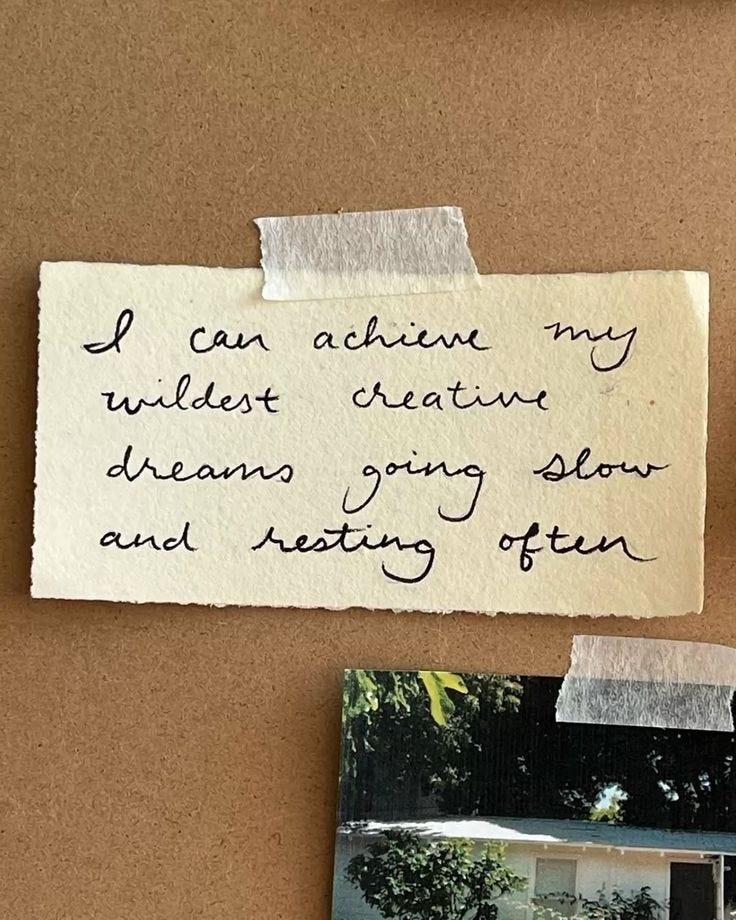“But then, one is always shaken by that voice, of someone crying, that goes on calling, crying out in a world that can be cruel and incomprehensible, demanding to be heard.” — Virginia Woolf
A Failure? Or a Dreamer?
It starts quietly, like the soft whisper of a breeze through an open window. A decision. A spark. A dream that tugs at the edges of your mind, growing louder with every passing day, demanding to be felt, to be heard. It curls in your chest, an ache that feels both thrilling and terrifying, as though your very soul is trying to remind you of something essential. And as it grows, it becomes impossible to ignore, like the rising hum of a song you didn’t realize you already knew. You feel its pull, its promise, its possibility. And yet, from the moment you decide to chase it, the world seems to lean in with its collective judgment, whispering in your ear: This is foolish. Irresponsible. A waste.
Failure. That’s the word they throw at you, as though pursuing something unconventional is an act of rebellion against a sacred script, a betrayal of the safety net society weaves with its expectations. It feels like a brand, pressed hot against your skin, marking you as other, as reckless. The word drips with the weight of disappointment and fear, a hammer meant to break the fragile glass of your dreams before they can take shape. It’s a word heavy with judgment, one that carries the weight of disappointment, of unmet expectations, of fears projected onto you by those too scared to follow their own dreams. But is it failure? Or is it simply the mark of a dreamer?
The Metrics of Success
In the eyes of society, success often comes with a checklist. A well-paying job. A steady routine. A house, a car, a retirement plan. It’s a blueprint of predictability, one that many follow without question. To stray from it is to invite suspicion.
But for dreamers, the metrics of success are different. It’s not about the number in a bank account or the title on a business card. It’s about fulfillment, about creating something meaningful, about living a life aligned with passion rather than obligation. Dreamers look beyond the visible and tangible, seeking something deeper: joy, purpose, and authenticity.
The tension lies in this clash of values. To the dreamer, the conventional path feels like a cage. To the conventional thinker, the dreamer’s path looks like chaos. And so, the dreamer is branded: not a visionary, but a failure.
The Dreamer’s Journey
What society often overlooks is the sheer courage it takes to dream. To step outside the lines, to defy convention, to risk ridicule and rejection in pursuit of something intangible. It is not the easy path. It is, more often than not, a lonely one.
Dreamers face endless obstacles: financial uncertainty, societal pressure, the nagging voice of self-doubt. They hear the murmurs of judgment from friends, family, and strangers alike. Why don’t you just get a real job? When are you going to settle down? The weight of those questions can feel unbearable.
Yet, dreamers press on. Because to abandon the dream is to abandon a part of themselves. It is to surrender to a life of “what if”—and that, to a dreamer, is a fate far worse than failure.
Some dreams take years to manifest. There are long stretches where the horizon seems unreachable, where doubt seeps in like a cold fog. But dreamers learn to endure. They learn to cherish the small victories—a breakthrough moment, a piece of validation, a quiet sense of progress that only they can see. And sometimes, it’s that private joy that keeps them moving forward.
“All that you are seeking is also seeking you.” — Franz Kafka
Dreamers also learn the art of resilience. They adapt, shift their sails, and find new ways to navigate. Resilience is like a river carving its way through stone. It doesn’t stop when met with resistance; instead, it bends, twists, and forges a new path. Dreamers embody this flow. Every rejection, every setback, every sneer of disbelief becomes a current they navigate. They are like seeds scattered on inhospitable ground, finding cracks in the hardest of surfaces, defying odds to bloom where no one thought life could exist. Their strength isn’t loud or boastful; it’s quiet, persistent, and undeniable—a testament to the power of belief and the refusal to give in. Failure, to them, isn’t the end—it’s a detour. It’s part of the process, a necessary step toward something greater. They understand that every stumble carries a lesson, every setback builds strength.
There’s also something poetic about the solitude of the dreamer’s path. It fosters introspection, self-discovery, and a deeper connection with the dream itself. In the quiet moments of doubt and struggle, dreamers often find their greatest clarity. They realize that the journey itself, with all its imperfections, is as meaningful as the destination.
Society’s Fear of the Unconventional
Why does society resist the dreamer? Perhaps because dreamers challenge the status quo. They remind the world that there are other ways to live, other definitions of success. And that’s frightening to those who have built their lives on conformity.
To embrace a dreamer’s mindset would require admitting that the conventional path is not the only path. That maybe—just maybe—we’ve been measuring success all wrong. It’s easier to dismiss dreamers as failures than to confront the possibility that they might be right.
But if we look closer, we see that the greatest advancements in art, science, and society have often come from those willing to dream. The ones who risked failure—and sometimes fell spectacularly—but kept going. Because they saw something the rest of us couldn’t.
Society often fears what it doesn’t understand. Dreamers become scapegoats, living proof that there is an alternative to the safety of convention. Think of Galileo, who dared to claim that the Earth revolved around the sun, defying the church and enduring ridicule for a truth that would later reshape our understanding of the universe. Or consider the Impressionist painters, rejected by the art establishment of their time, who boldly created a movement that now defines beauty for countless admirers. These dreamers, standing at odds with the status quo, forced the world to stretch its boundaries—but not without first bearing the brunt of society’s fear of the unconventional. Yet the fear is not always rooted in malice. Sometimes it stems from envy—a yearning for the freedom that dreamers embrace. And other times, it’s born from concern: the worry that the dreamer will be hurt, disappointed, or left behind.
But what society often fails to see is the resilience of dreamers. They are not reckless wanderers, lost and adrift. They are builders, creating their own maps to uncharted territories. They understand that the path is not always clear, but they move forward anyway, trusting their instincts and the vision that guides them.
Society also underestimates the ripple effect of dreamers. One person’s courage to defy the norm often inspires others to do the same. It’s a quiet revolution, one that starts with a single voice daring to question, daring to create, daring to believe. Over time, that voice becomes a chorus, and the world begins to change.
Redefining Success
So what if we shifted the narrative? What if we stopped asking, “Have you made it yet?” and started asking, “Are you happy?” Success doesn’t have to be a monolith. It can be as diverse as the people who pursue it. For some, it’s a high-powered career. For others, it’s a quiet life filled with simple joys. And for dreamers, it’s the act of creating, exploring, and staying true to themselves.
History is full of dreamers who were once labeled failures. Van Gogh sold only one painting in his lifetime. J.K. Rowling was rejected by twelve publishers before finding success. Their stories are reminders that failure isn’t the opposite of success—it’s part of the journey toward it.
To redefine success is to embrace its fluidity. It’s about valuing process over outcome, passion over perfection, and integrity over approval. It’s about honoring the effort it takes to pursue something meaningful, even if the result looks nothing like what the world expects.
Failure or dreamer? Perhaps they are two sides of the same coin. To dream is to risk failure, yes. But it is also to risk greatness, fulfillment, and a life that feels true.
Society may never stop labeling dreamers as failures. But dreamers don’t need the world’s approval. They need only the courage to keep going, to redefine success on their own terms, and to embrace the beauty of a life lived boldly.
In the end, the question isn’t whether you’ll fail. The question is whether you’ll dare to dream anyway. And that, perhaps, is the truest mark of success.
And so, when you stand at the crossroads, uncertain and afraid, remember this: every step you take toward your dream is an act of defiance. Like the voice Virginia Woolf described, crying out in a world that can be cruel and incomprehensible, your dream demands to be heard. It is not just an act of courage but of necessity, a refusal to let the weight of convention silence what is most true within you. It’s a declaration that you refuse to settle for anything less than what sets your soul on fire. That kind of bravery doesn’t make you a failure—it makes you unstoppable. Keep going. The world may not understand you now, but history belongs to the dreamers.
till then, xoxo,
Mukta<3
Song of choice,








beautiful piece girlie, as a dreamer at heart, i soo relate - it is a pity that people like to crush dreams by calling them hopeless and calling us failures